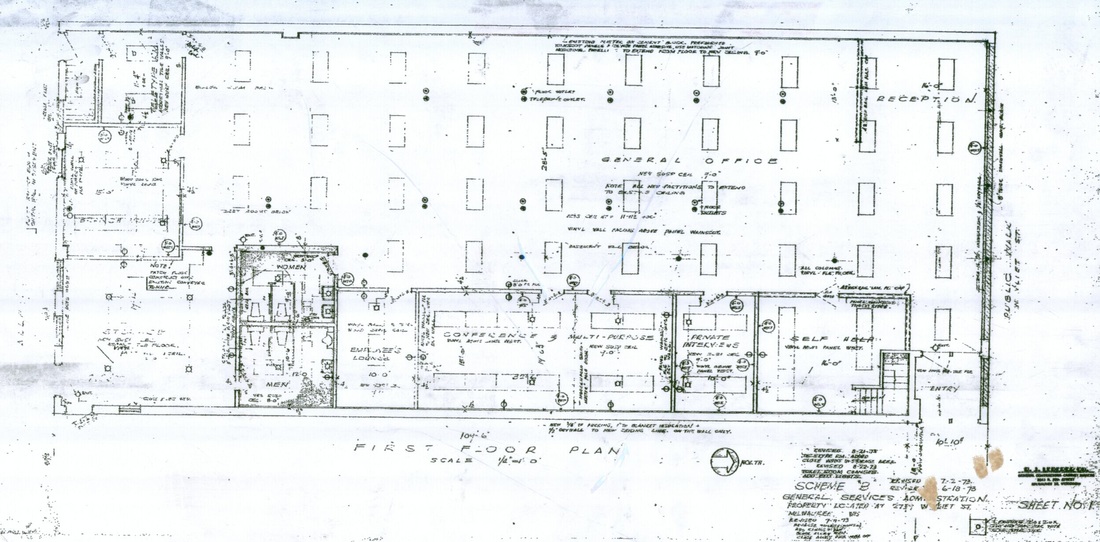C&S Supermarket
|
C&S Supermarket is a Hmong American owned store located at the corner of Vliet Street and 27th Street. This building was built in 1941 and has seen many owners and uses. It was occupied by Atlantic & Pacific Tea Company (A&P) until 1973. At that time, the storefront windows and doors along Vliet Street were sealed off and boarded with plywood. In the same year, the building was bought by the office of the United States Social Security Administration. In 1986, it changed hands again and was bought by Delta Biological Plasma Center, run by Delta Biological Resources. The space was used as a facility for collecting, processing and manufacturing source plasma, specialty plasmas and other biological products used for therapeutic and diagnostic purposes. This facility closed by the end of 1991. The building changed ownership again in 1993 and a grocery store named Superior Oriental Store opened in the premises. The person who managed this grocery store rented the building from an absentee landlord. In 2006, the Yang family bought the store and renamed it as C&F Vliet Supermarket. In 2010, the store was renamed again as C&S Vliet Street Supermarket.
This grocery story has reshaped the life of the Yang family in many ways. The owner and his wife don’t farm anymore in this neighborhood. They spend almost all their time tending the store. Their kitchen at home is barely used now. Instead, they use the kitchen inside the store. Their two sons come to the store regularly during their college breaks in order to help their parents. Yee Yang—the younger son has majored in marketing and hopes to help his parents manage the store in the future. The store also serves a symbolic function as a Hmong community cultural space. The family decorated the store with Hmong cultural artifacts and ornamental details such as the "bandao" embroidery painted on to the ceiling tiles. The success of the current C&S Vliet Street Supermarket is the result of hard labor of the Yang family. As Yee described, "the whole place was really a mess when we first got it. We had to clean off the floors and we had to go downstairs to clean off the basement." However, as an ethnic grocery store, the business is successful because it fills a niche ethnic market and caters to an expanded Asian clientele including Hmong, Vietnamese, Laotians and Burmese living in this neighborhood and beyond. This store serves a variety of Asian foods from east and southeast Asia. Goods and ingredients from Thai, Laos and China appear on the shelves. The merchandise in the store is organized in ways that seem slightly different from mainstream American grocery stores. According to Yee part of the rationale was idiosyncratic, "There isn’t a way of organizing things. It’s just a way my parents thought it should be." But other choices were symbolic, pragmatic or cultural. For instance, a TV counter in one end of the store marks the separate media section of the store carrying Hmong video tapes and music media. Hmong shows loop all day long in the television display. Another section carries gardening equipment addressing the needs of the many Hmong gardeners who shop here. Spices are arranged in ways that make it easy for the ethnic shoppers to find them. An ethnic grocery store is more than a marketplace. It is also a community space and a node where identities are reproduced and recreated. The act of entering and patronizing stores such as C&S Vliet Street Supermarket becomes part of the social construction or reproduction of Hmong American identity in Milwaukee. |
Atlantic & Pacific Tea Company (A&P) in 1955
|

